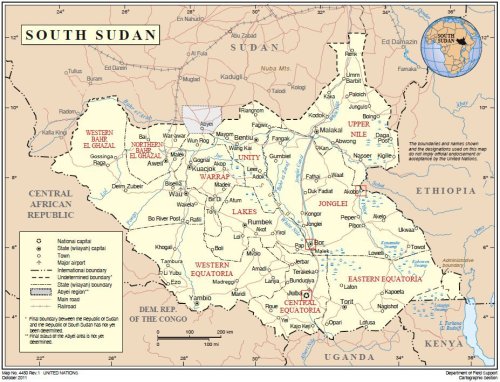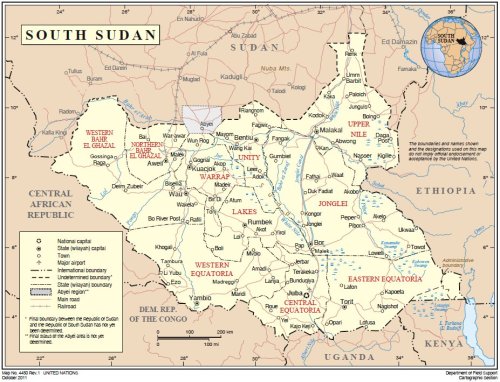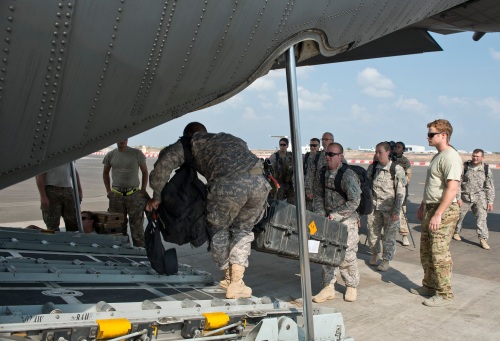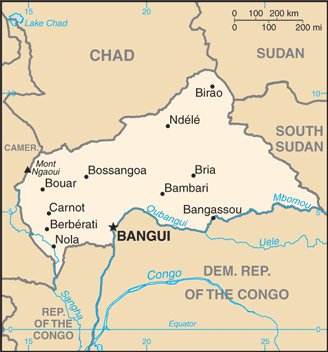Despite reports that the ethnic Nuer “White Army” had turned around from a planned attack on Bor, the capital of South Sudan’s Jonglei state, it was reported that they had in fact taken control of the city yesterday. Renewed clashes between Nuer rebels and government forces in Bor, a major focus of the violence that has wracked the country, were subsequently reported today. It remains unclear whether either side is firmly in control of the city. Fighting also continues elsewhere in the country.

Map of South Sudan from the United Nations, dated October 2011. The capital, Juba, as well as the cities of Akobo and Bor have been highlighted.
The continued strife comes as it was announced that peace talks mediated by Ethiopia would commence in the capital of that country, Addis Ababa. These talks will be held under the auspices of the Intergovernmental Authority on Development (IGAD), an East African regional bloc that recently held a summit on ways forward in South Sudan. At the summit, South Sudanese President Salva Kiir stated he was willing to declare a ceasefire and enter into negotiations with rebels in his country. Ethnic Nuer rebels were hesitant and their defacto leader, Riek Machar, blamed by President Kiir for the coup attempt to provoked the violence, had demanded the release of political allies who have since been arrested before beginning any talks. However, after the reported capture of Bor yesterday, Machar announced he would be sending a delegation to Ethiopia.
Machar and his remaining allies deny any coup attempt and insist that President Kiir had incited the violence to distract from problems within the country. Machar, a former Vice President, had been an outspoken critic of President Kiir and his government, accusing the Dinka ethnic group of dominating the country’s political institutions after the country gained independence in 2011. Machar had also been an on-again off-again member of the Sudan People’s Liberation Movement (SPLM) rebel group, which subsequently became the country’s dominant political party after independence. President Kiir has ruled out any possibility of power-sharing and also said recently that he felt other regional leaders should have come immediately to the aid of the government following the coup.
At least one thousand people have died in the resulting violence, with tens of thousands sheltering in facilities operated by the United Nations Mission in the Republic of South Sudan (UNMISS). Approximately ten thousand South Sudanese have also fled the country. The UN estimates that some one hundred and eighty thousand people have been displaced in the fighting. The UN has also reported that it is finding significant evidence to support accusations of serious rights abuses during the violence on all sides. This has included the reported discovery of mass graves. The UN has repeatedly called for an end to the violence and a peaceful solution to the crisis, and the African Union today threatened the possibility of sanctions against those inciting violence.


